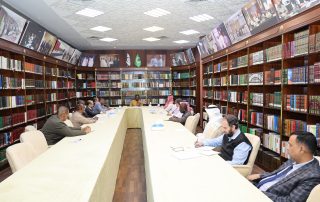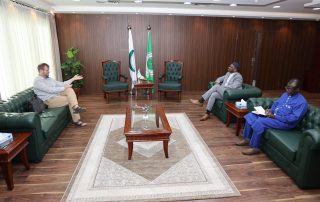
In the Name of Allāh,
the Entirely Merciful, the Especially Merciful
Praise is due to Allāh, Lord of the worlds, may the blessings and peace be upon our master Muḥammad, the last of prophets, on his family, and all his companions.
Resolution No. 213 (9/22)
Rights of People with Disabilities in Islamic Jurisprudence
The Council of the International Islamic Fiqh Academy of the Organization of Islamic Cooperation, holding its 22nd session in Kuwait City, State of Kuwait, on 2–5 Jumādā al-Ākhirah 1436h (22–25 March 2015),
Having examined the research papers submitted to the Academy concerning
Rights of People with Disabilities in Islamic Jurisprudence,
Having recalled the extreme attention given by Shariah to people with disabilities,
Having listened to the in-depth discussions on the subject,
Resolves
- A person with a disability is a person who is unable mentally, sensorily or physically to perform the acts that he or she needs to perform compared to a healthy person.
- The rights of people with disabilities refer to the qualities that Shariah and existing laws confer to them to lead a decent life.
- Shariah has guaranteed the rights of people with disabilities to live a dig- nified life, and made them an inseparable part of their community, who enjoy the same rights of others, except for rights exempted by a Shariah
- People with disabilities have rights over their families, including the right to take measures to eliminate the causes that lead to The family should pay necessary expenses for its members with disabilities, provide them with appropriate education based on compassion and respect, and strive to meet their basic needs such as marriage, housing, etc.
- People with disabilities have rights over their The most important of these is integration with other members of society, good fellowship, respect, non-humiliation in any way, and investment of their energies and abilities for their own wellbeing and benefit; and that of their society.
- People with disabilities have rights over the State:
- Health care through the establishment of specialized medical institutions for the treatment and rehabilitation of people with disabilities, and through the training of their caregivers on how to care for them.
- Appropriate education, including providing the most developed methods and means of education and the training of teachers and educators specializing in their education and rehabilitation.
- Labour that takes into account abilities and means of people with disabilities, including training to prepare their entry into the job
- Financial adequacy of financially disadvantaged people with disabilities through Zakāh, Awqāf, charities, and public
- Travelling by appropriate means, including providing appropriate means of transport and establishing appropriate standards for public buildings and utilities to facilitate their movement and
- Enact laws and regulations that preserve their rights and monitor their
Recommendations
- Work to raise awareness in the family and society on the rights of people with disabilities in all possible ways; through media, educational, cultural and social programs.
- Support from government and non-governmental organizations and in- stitutions concerned with disability issues and strengthening their rele- vant
- Organizing conferences, seminars and workshops on disability issues.
- Establish disability studies and research centers and benefit through pro- grams directed to people with disabilities.
- Widen the windows of mutual communication between society and peo- ple with disabilities and create and support associations that are interested in their rights and adopt their causes at local and international levels.
- The Academy reaffirms the need to do everything possible to reduce the causes of disability, including pre-marital medical examinations and vac- cination against poliomyelitis and other types of diseases.
- Endorsing international conventions on the rights of people with disabil- ities without violating Shariah rules.
Indeed, Allāh is All-Knowing.
Read Also
Lastest








